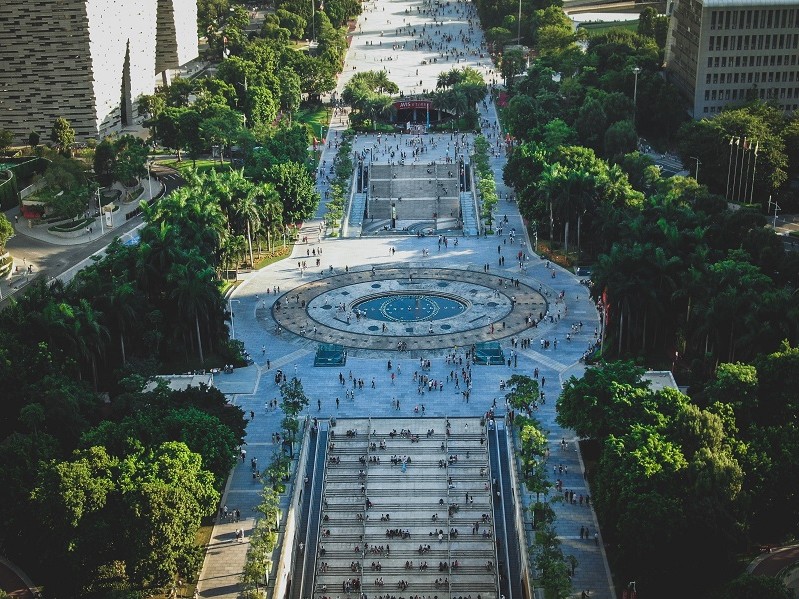Renaturing cities: good for health and the economy
Would you enjoy a city full of parks, where streets were tree-lined, where cycling and walking were pleasant, a city with grass-insulated roofs on houses and public buildings to keep you warm in winter? According to a Eurobarometer study, there is an 84 per cent chance that your answer is yes. But you might be afraid that such a green city would mean giving up your car or experiencing a rise in the cost of living. The survey found that 28% of Europeans fear that natural areas would not be properly maintained, 22% expressed concerns over the high cost to the taxpayer and 18% feared rent increases due to higher property prices. Urban planner Thami Croeser, spatial analyst at the RMIT (Royal Melbourne Institute of Technology), is studying what researchers call “nature-based solutions” (NBS), which means bringing nature back to the city to make the built environment a healthier and a better place to live. He is currently part of an international project team advising the European Union on planning for urban greening. What can be done to convince people to give up their bad habits, for example concerning cars? The thing is, people aren’t actually the problem – it’s how we work with people that makes them allies or enemies. Getting the community involved on these kinds of projects really early is one of the most important steps we can take. I have consistently found that even though many people do like their cars, they are willing to get creative to work out green solutions such as closing or narrowing a road, or giving up some parking space for green space or trees if it benefits their neighbourhood. There will always be a few people who believe cars must be the priority at the expense of all else, but they are a minority, and most people understand that we can make really positive trade-offs once they’re given a chance to engage in the process. The best thing is that urban greening isn’t actually ‘anti-car’ at all. With clever design we can often retain some vehicle access while helping our streets get lots of trees, vertical greening and understorey planting. But some might think that nature in cities is not that important after all, that if you like flowers and trees maybe you should go live in the countryside. What would you say to that? Nature in cities does a lot of things for us. It can keep cities cool, prevent flooding, clean the air, improve our mental health and encourage exercise. It is also valuable habitat for many species, and can contribute to the beauty and identity of the places we live. In my opinion, urban NBS are now more important than ever. As our cities get denser and busier, we get less and less contact with nature from private gardens and backyards. That means the public realm must increasingly be where we get the benefits of nature. This has historically been a ‘blind spot’ for city planners, urban designers and engineers. As cities have developed, we’ve been focused on transport, housing, industry and infrastructure – nature has been an afterthought, as cities get a handful of parks and street trees at best. In the process, we have often produced very grey urban environments that get hot, flood easily and are unattractive and unhealthy to spend time in. We have a lot of retrofitting ahead of us, especially as the climate becomes more extreme. The good news is the NBS industry is maturing and there are more and more ways to help our cities go green. Read the full Article on: https://www.urbangreenup.eu/news--events/news/renaturing-cities-good-for-health-and-the-economy.kl(opens in new window)



